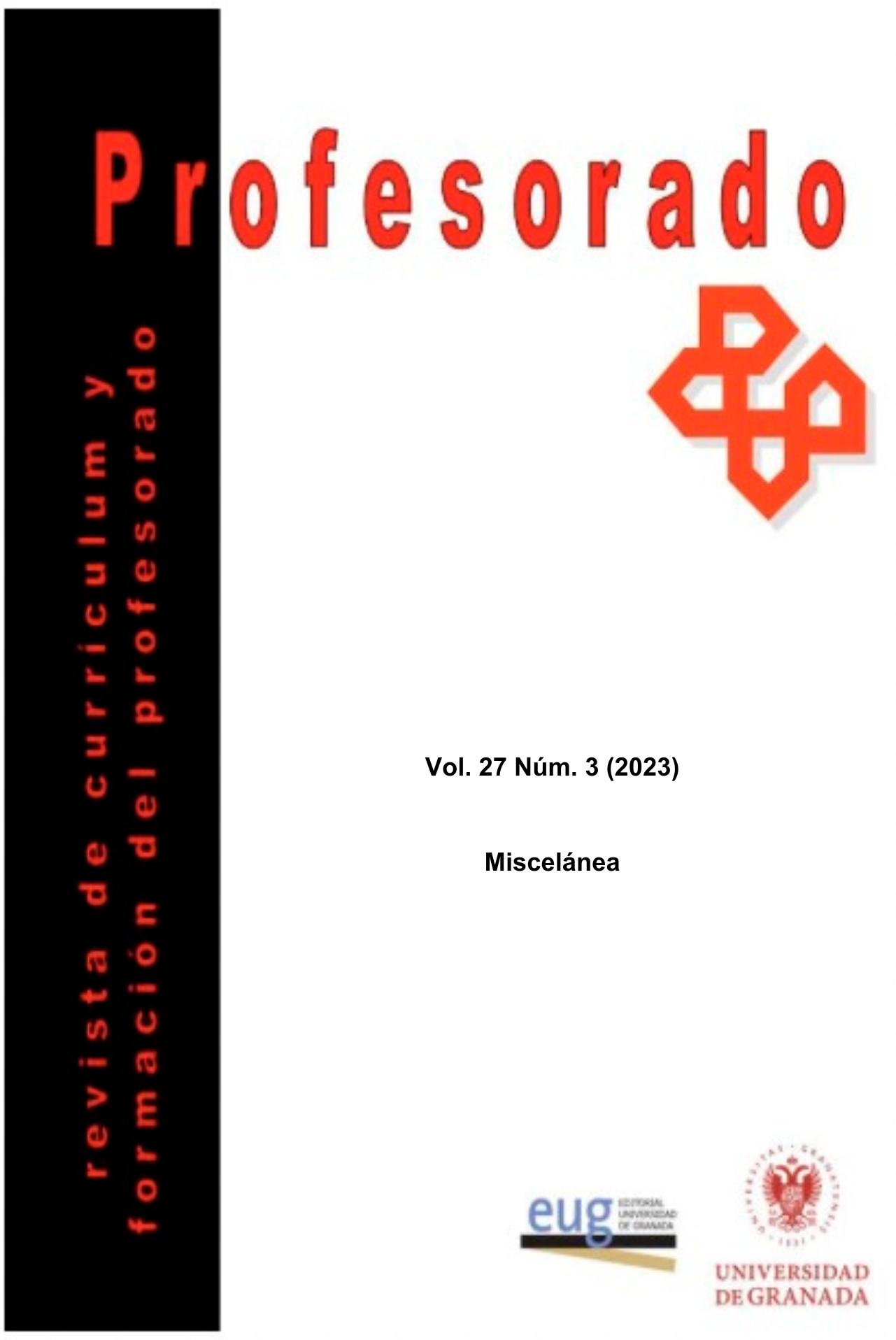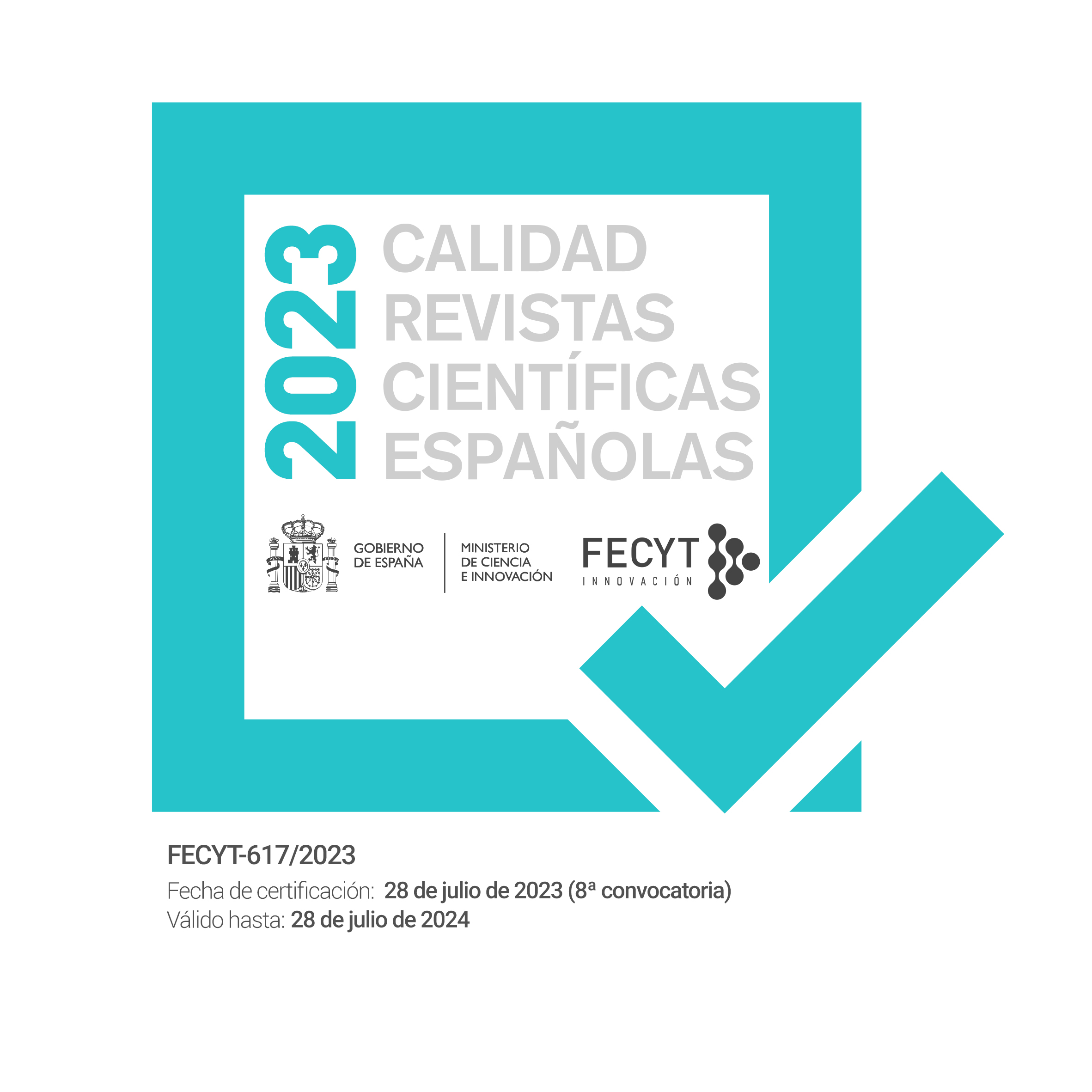Curricular innovation as a strategy for improvement in educational careers
DOI:
https://doi.org/10.30827/profesorado.v27i3.23498Palavras-chave:
system of education; educational innovation; continuous assessment; quality of educationResumo
This article was derived from a research project and its objective is to systematize the results of the diagnosis in the curricular improvement as part of the evaluation of the teaching-learning content of the redesigns in the Psychopedagogy and Initial Education careers of the Universidad Laica Vicente Rocafuerte of Guayaquil. The problem was related to the need to refine the designs of the careers, which starts from the revision of the curricular design approved in 2016 by the Council of Higher Education where critical-reflective scenarios were raised that justified the need for curricular innovation. Work tables were organized that promoted a hermeneutical exercise, to obtain support information in the curricular update and production of knowledge about the elaborated design. The approach considered was mixed, with a non-experimental descriptive design. A survey was applied to teachers and students on situations observed in the curricular design and an interview to the graduates who were part of the analyzed fabric and includes the exploration of resources to diagnose the practice and lay the foundations of the new curricular design. From this, different perspectives of future curricular planning were determined, to respond to the sustainability of the quality of Higher Education in educational careers. The changes analyzed and proposed for the academic organization of the curriculum based on the diagnosis made, will favor the contextualization of knowledge and the articulation of substantive processes in order to optimize the profile of the future professional through innovation.
Downloads
Referências
Bernal- Álava, Á. F., Cevallos- Villamar, J. D., Guerrero- Vallejo, J. L., Cedeño- Cedeño, G. A., Goyes- Robalino, A. P., & Peñafiel- Moncayo, R. (2019). El diseño curricular y la didáctica, ejes fundamentales en la Educación Superior contemporánea (Primera). http://dx.doi.org/10.17993/DideInnEdu.2019.45
Brovelli, M. (2001). Evaluación curricular. Fundamentos En Humanidades, 2(4), 101–122. https://doc-0s-4g-docs.googleusercontent.com/docs/securesc/d9jemq8ipa24aip7hr8
Collado, S. A., & Fachelli, S. (2019). La competencia de trabajo en equipo: una experiencia de implementación y evaluación en un contexto universitario. REIRE Revista de Innovación, 12(2), 1–21. https://doi.org/10.1344/reire2019.12.222654
Consejo de Educación Superior. (2015). CES Socializa el currículo genérico de las carreras de Educación. CES. https://www.ces.gob.ec/?te_announcements=ces-socializa-el-curriculo-generico-de-las-carreras-de-educacion-29-01-2015
Consejo de Educación Superior. (2016). Informe Técnico de Evaluación de la propuesta de rediseño de la carrera de Educación Inicial presentada por la Universidad Laica Vicente Rocafuerte de Guayaquil. http://gaceta.ces.gob.ec/documento_oficial.pdf
Consejo de Educación Superior. (2017). RPC-SO-04-No.067-2017 (Issue 067). http://gaceta.ces.gob.ec/documento_oficial.pdf
Córdoba- Peralta, A. L., & Lanuza- Saavedra, E. M. (2021). Breve revisión conceptual sobre la evaluación de los resultados académicos en el sistema educativo. Revista Científica de FAREM- Estelí, 10, 36–48. https://rcientificaesteli.unan.edu.ni
Delgado, R. (2021). El desarrollo curricular como escenario y estrategia organizacional de formación y perfeccionamiento docente. Revista Multidisciplinaria Dialógica, 17(3), 120–139. http://revistas.upel.edu.ve/index.php/dialogica/article/view/9128/5639
Espejo, L. R., Romo, L. V., & Cárdenas, K. (2020). Desarrollo docente y diseño curricular en educación superior : una sinergia necesaria para mejorar la calidad de la educación. Estudios Pedagógicos, XLVI(2), 7–23. https://doi.org/10.4067/S0718-07052020000200007
Freire- Quintana, J. L., Páez, M. C., Núñez- Espinoza, M., Narváez- Ríos, M., & Infante- Paredes, R. (2018). El diseño curricular, una herramienta para el logro educativo. Revista de Comunicación de La SEECI, 0(45), 75. https://doi.org/10.15198/seeci.2018.45.75-86
Gamboa- Solano, L., Guevara- Mora, M. G., Mena, Á., & Umaña- Mata, A. C. (2021). Aspectos para integrar el enfoque de resultados de aprendizaje en el diseño curricular universitario. Innovaciones Educativas, 23(34), 150–165. https://revistas.uned.ac.cr/index.php/innovaciones/article/view/3474
Higuera, Z. A., Rivera, G. E., & Santamaría, O. A. (2020). Sostenibilidad curricular: construir programas académicos integrales. Revista Digital Universitaria, 21(3), 1–9. https://www.revista.unam.mx/wp-content/uploads/a10.pdf
Huamán, L., Pucuhuaranga, T., & Hilario, N. (2020). Evaluación del logro del perfil de egreso en grados universitarios : tendencias y desafíos. Revista Iberoamericana Para La Investigación y El Desarrollo Educativo, 11(21). https://doi.org/10.23913/ride.v11i21.691 Artículos
Infante, V. M. (2021). La innovación didáctica. Su necesidad en el perfeccionamiendo del modo de actuación profesional. Sociedad & Tecnología. Revista Del Instituto Tecnológico Superior Jubones, 4(1), 5–24. https://doc-0k-4g-docs.googleusercontent.com/docs/securesc/d9jemq8ipa24aip7hr
Martínez- Iñiguez, J. E., Tobón, S., & Soto- Curiel, J. A. (2021). Ejes claves del modelo educativo socioformativo para la formación universitaria en el marco de la transformación hacia el desarrollo social sostenible. Formacion Universitaria, 14(1), 53–66. https://doi.org/10.4067/S0718-50062021000100053
Ojeda, D. D. (2019). La innovación curricular: un camino para la formación docente globalizada. Revista Espacios, 40(33), 1–8. http://www.revistaespacios.com/a19v40n33/a19v40n33p24.pdf
Pérez, B. D. (2020). La estructura del diseño curricular The structure of curriculum design. Revista Guatemalteca de Educación Superior, 3(1), 85–95. http://dx.doi.org/10.20511/pyr2020.v8nSPE2.729
Salas- Perea, R. S. (2016). ¿El rediseño curricular sin evaluación curricular es científico? Educación Médica Superior, 30(2). http://scielo.sld.cu/scielo.php?script=sci_arttext&pid=S0864-21412016000200017
Sanjurjo, L., Caporossi, A., Foressi, M. F., López, M. S., Placci, N., & Urcola, D. (2020). Acerca de diseños curriculares.
Tamayo, V. A. (2010). Epistemología, currículo y evaluación. Praxis & Saber, 1(1), 103–116. https://doc-10-4g-docs.googleusercontent.com/docs/securesc/d9jemq8ipa24aip7hr
Toro- Santacruz, S. E. (2017). Conceptualización de currículo: su evolución histórica y su relación con las teorías y enfoques curriculares en la dinámica educativa. Revista Publicando, 4(11), 459–483.















